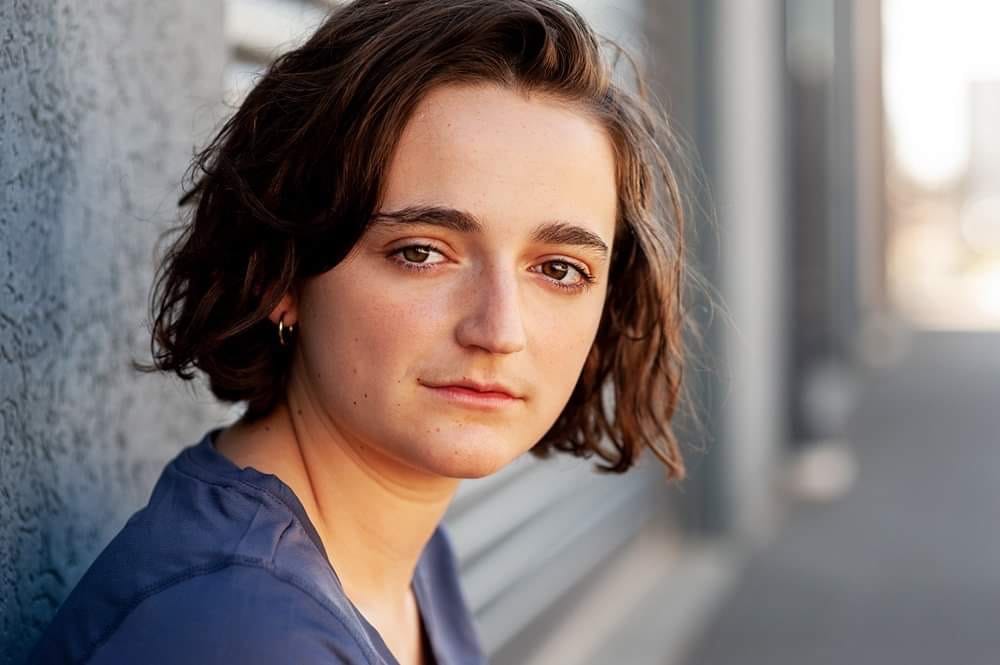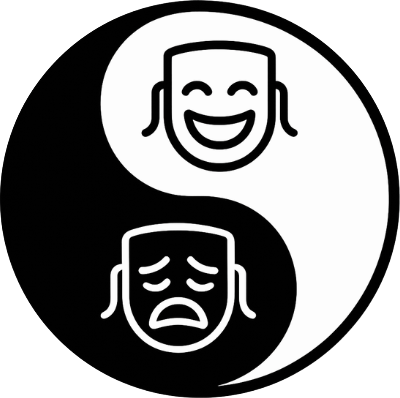Behind the Breakout: Courtney Cavallaro
Courtney Cavallaro is one of those people you want to be friends with. She's both a true talent and a true delight to banter with.
The Brisbane native moved to Perth in 2018 to study Performance Making at the Western Australian Academy of Performing Arts (WAAPA). Upon graduation, Courtney was awarded the Belinda Dunbar Prize (recognising the most outstanding student) and was nominated for Best Newcomer at the Performing Arts WA Awards shortly after.
Since then, she's gone from strength to strength, being selected for the AFTRS National Talent Camp in 2022, gracing our screens in Netflix's Irreverent, playing Celia in As You Like It for Queensland Theatre (for which she was nominated for two Queensland Theatre Awards 🤯), and now touring Australia with New Theatricals' season of Gaslight.
Here, we talk to Courtney about wearing multiple hats, skipping rope on main stages, and the actual work of manifestation.

When did you first start dreaming of becoming an actor?
Courtney Cavallaro: My nan has a really good story about this. It's one of those borrowed memories because I don't remember it, but I think it's great. I was watching a show – I was three at the time – and I was really getting into it. I pointed to the lead girl and was like, "I want to be doing what she's doing". My nan was like, "Oh yeah? What the character is doing?", and I was like, "No, I want to be the girl who's her. I want to be the person that's being the person".
So, it's been a long, long love affair for me. Basically, from the minute I figured out that it was a thing you could do. I think I verbalised that I wanted to go to WAAPA when I was eight.
Wow. Did you ever consider alternate career paths?
CC: Every three months, I'm like, "Is this still sustainable?" ... The people around me will attest to the fact that I probably have a genuine crisis around it every year, but as I've got older, I've also started doing other things in the artistic realm.
I think when I was younger, there was a pride in wanting to "make it" as just an actor. I felt like I wanted to deliver in that sense, as opposed to being more confusing and having a bunch of different artistic hats I wear. But by virtue of growing up, needing work, and loving other things, I'm slowly letting go of that pride. Because we're artists, so obviously there's a calling to stories, but there are lots of ways you can make a story. I think you get sold the idea that you are only successful when you've done one thing, but everyone I look up to wears multiple hats.
You're a graduate of WAAPA – one of the best performing arts schools in the world. What was the biggest takeaway from your three years there?
CC: I did the BA (Performance Making), and that was very much the course where maybe 1/6th of people were there because they actually liked performance making, and 5/6th were people who didn't get into BA (Acting). And you felt that in the institution – "You guys are the B-grade actors". I think everything worked out well for me, but you still carry that. ... "Chip on the shoulder" isn't the right word for it, but that kind of feeling.
BPA was [also] a relatively young course, and it didn't have the same resources. It didn't have the same funding, it didn't have the same performance outcomes and opportunities, and you didn't feel you were getting the same experience at times. But I think that was for the best because it was very intense, but it wasn't like a 9-5 conservatory. We had to develop our stuff very early on, do a lot of devised work, a lot of rehearsing your own thing. I think that I was more used to not having time dictated for me over those three years, so by the time I graduated – I still had a bit of a crisis – but I didn't have the scope of crisis that I think I could have had where you're like, "Oh my gosh, I'm not in an institution anymore. I don't have someone telling me what to do, or where to be, or even have places to be". You developed a kind of self-discipline.
Right. All that said, you completed a mighty impressive transition from new grad to in-demand actor and writer. What advice would you give someone looking to do the same?
CC: I feel like I could answer this question in two ways. I could answer and be like, "Yes, I have all the advice!" or I could be like, "Well, actually, there was a year of nothing". There was a year where I didn't really get any auditions, and I didn't do any acting. It was [also] a weird time because it was sort of COVID-19-y, but that was when I was like, "Okay, I wear my writing hat right now" because that was something I could control.
You can't control a lot in this industry, and, unfortunately, you're at the mercy of straight-up subjectivity. You can start to think of yourself as a commodity and [be] like, "How can I be what they need?". But I think because I had that dead year, I was like, "How can I gain back some control?".
So, I spent a lot of time writing and told myself, "Alright, work is going to be on the way soon. What do I need in order to be ready for when the work comes?" ... For me, that looked like writing a play and working on an American accent for a year. Those goals just gave me something to control. Then, by the time things were coming around, I felt I was warm and limber and ready.
On readiness, you've now completed several main-stage theatre seasons. How do you mentally prepare yourself for these runs?
CC: Honestly, I'd say the biggest thing I do for myself is walk. This is something I do for my mental health outside of show season. I'll generally walk at least two hours a day, generally to somewhere and from somewhere. It's like moving meditation. And sometimes I'm listening to music, sometimes I'm listening to a podcast, sometimes I'm responding to emails – so it's not like serious work – but things come to me when I'm walking.
And then, this is also physical, but I see it as mental: I skip [rope] before every show – in the space if I can. It's really loud, and it's kind of obnoxious, and I apologise to everyone, but I'll try and get in early so people aren't there. But I like making noise in space, getting into some breathing, getting a bit warm, getting a bit sweaty, and starting to feel like I'm a part of the space as opposed to coming in and being like, "Alright, I need to start lip trilling now".
Continuing in the mental health vein, how do you approach off-season, rejection, and the less fun aspects of the actor's path?
CC: I think it's a level of trust in yourself and your own long game. If you choose to stay match fit, you're telling yourself and the world and the universe: "I trust that this is coming for me. I am the person that will have these things".
It's basically manifestation work but like actual manifestation work, not: "I hope that this happens". It's, "I'm going to be the person I want to grow into being".
Love 🙌 that 🙌 Finally, what three films or series would you mandate every actor watch?
CC: One I feel pretty comfortable locking in is Succession. I think it's the closest hybrid between theatre, film and TV. You're seeing masters at work, doing these long shots, and it's truly an ensemble show. Then, because of the ensemble drama, I think an ensemble comedy is also worthwhile. So, I would say Parks and Recreation because that's a show that found itself as it went along, and you kind of watch the characters and the actors find their footing throughout the series, which is cool.
And then I'll be really cliche and say Everything Everywhere All at Once. It's just so spectacular. And I feel like if Succession is [on the right] and Parks and Rec is [on the left], Everything Everywhere All at Once is [in the middle] because it's silly and serious at the same time. It hits the sweet spot of what I want to achieve with things I make – taking yourself so seriously that you can be silly and taking the silly so seriously that it's heartbreaking. But just go watch everything.
Big love to Courtney for her time. You can follow Courtney's journey over on Instagram. If you wave hello, let her know you're a Dojo kid 👋
Thoughts / feedback / challenges for us? We'd genuinely love to hear.
